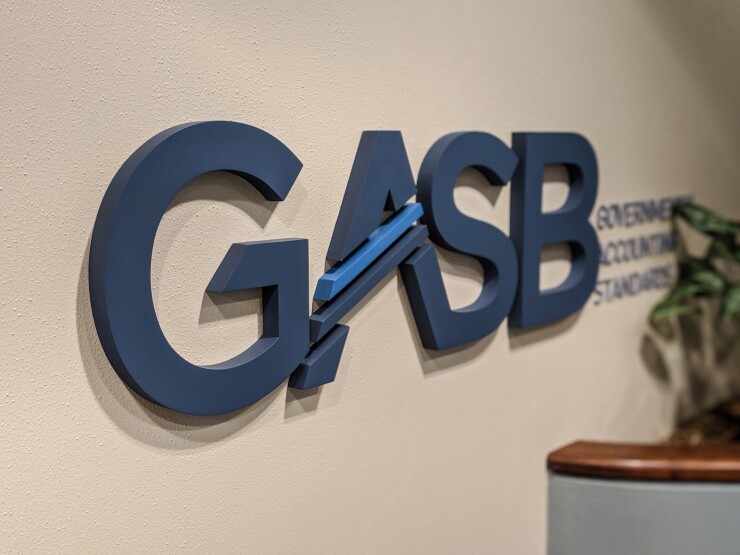The Governmental Accounting Standards Board has finalized new guidance on transitioning away from Libor and will release on April 16 a list of delays to various other guidances because of the coronavirus pandemic.

The April 16 announcement will be in the form of an exposure draft for the purpose of postponing a variety of dates for GASB actions in various stages of development.
But GASB said it is moving ahead with releasing its final guidance on public-private partnerships on Tuesday.
The finalized guidance on moving away from Libor released Thursday, known as
The guidance provides accounting and financial reporting rules to help state and local governments in the transition away from existing interbank offered rates to other reference rates.
“This is the relief that we were hoping to provide but given what’s going on, they are going to continue to monitor the situation and if additional steps are needed, they will look at that for sure,” GASB spokesman Kip Betz said.
Governmental issuers still do not have templates or protocols for documents that would comply with the new reference rates. Those protocols are expected to be issued by the International Swaps and Derivatives Association.
The Treasury and Internal Revenue Service have not yet finalized their
The Treasury-IRS proposed transition regulation addresses the possibility that such a modification of a debt instrument, derivative, or other financial contract could be a taxable transaction for federal income tax purposes or could result in other tax consequences.
Both the Treasury proposal and GASB guidance include all other IBORs offered in other countries, including Switzerland, Japan and the European Union.
The new GASB guidance notes that some governments have entered into agreements in which variable payments made or received depend on an interbank offered rate (IBOR), including the London Interbank Offered Rate (Libor), which is being phased out by the end of 2021.
The new GASB statement provides exceptions for certain hedging derivative instruments to the hedge accounting termination provisions when an IBOR is replaced as the reference rate of the hedging derivative instrument’s variable payment.
It also clarifies the hedge accounting termination provisions when a hedged item is amended to replace the reference rate.
It clarifies that any uncertainty related to the continued availability of IBORs does not, by itself, affect the assessment of whether the occurrence of a hedged expected transaction is probable.
It removes Libor as an appropriate benchmark interest rate for the qualitative evaluation of the effectiveness of an interest rate swap.
It identifies the Secured Overnight Financing Rate (SOFR) and the effective Federal Funds Rate as appropriate benchmark interest rates for the qualitative evaluation of the effectiveness of an interest rate swap.
It clarifies the definition of reference rate, as it is used in Statement 53, as amended.
It also provides an exception to the lease modifications guidance in Statement 87, as previously amended, for certain lease contracts that are amended solely to replace an IBOR as the rate upon which variable payments depend.





